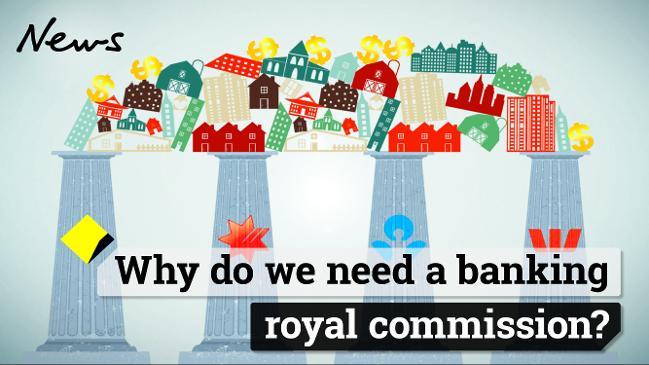The ‘dirty money’ bank beyond the law (original) (raw)
DRUG cartels, mafia, celebrities and the European aristocracy: when it comes to laundering “dirty money” world giant HSBC is king and proof it may actually be impossible to regulate banks.
An ABC-TV Four Corners program about HSBC — the Hong Kong and Shanghai’s Banking Corporation’s reveals the scope of the global financial institution’s scandal-ridden operations.
The French-TV made “Banksters” claims HSBC was the go-to bank for “a raft of illegal activities, from money laundering for the mafia, to enabling tax evasion and currency manipulation”.
The program screened on Monday night, following recent bombshell revelations in Australia’s banking industry at the Haynes Royal Commission into misconduct in the banking, superannuation and financial services industries.
HSBC is one of the world’s largest and most powerful financial institutions, with offices on five continents, including in Australia.
The Hong Kong-based bank, which has branches around Australia, “likes to spruik its financial might and global reach”.
But behind the corporate gloss, it has been at the centre of several of the biggest financial scandals uncovered this century.
As _Four Corners_’ Sarah Ferguson says in her introduction, the Australian banking royal commission had exposed a “litany of rorts and rip-offs”.
“The forging of documents, bribes in plain envelopes, and charging dead people for financial advice,” she said.
“It’s hard to imagine that these accusations pale in comparison to the scandals that have enmeshed one of the world’s biggest banks.”
The investigation into HSBC said it is “considered one of the best money-laundering institutions globally.”
“From Geneva to Hong Kong, from New York to Paris, this financial empire has created a unique network for moving dirty money around the world.”
Despite being the bank that Mexican drug lords had funnelled one billion euros via a Mexican subsidiary, the bank was continually able to evade proper investigation.
“Normally this bank would have been closed down,” said John Christensen, co-founder of the Tax Justice Network, said:
“They would have lost their licence to operate.
“This place is likely to attract a lot of dirty money. This is a highly secretive jurisdiction, but it’s also a huge financial entrepreneur.”
But there was an ultimate objective behind HSBC’s global expansion, Four Corners said: to establish the Chinese currency, the yuan on the world market.
US investigators asked, “My question is, in your opinion, how many billions of dollars do you have to launder for drug lords before somebody says, ‘We’re shutting you down’.”
According to a former US Deputy Federal Prosecutor, “Affiliates of drug cartels were literally walking into bank branches with hundreds of thousands, sometimes millions of US cash.
“That didn’t happen once, it didn’t happen twice, it happened systematically over the course of about a decade.”
Although its headquarters are in London, HSBC still has a major power base in Hong Kong and its global nature makes it difficult to regulate because it operates in so many jurisdictions.
The report says that vast sums flow into the bank from influential sources.
“There is simultaneously drug money, money from terrorism, money from Belgian diamond dealers, money of the French dental surgeons, money of the elite and the world of showbiz, of French and European aristocracy,” said investigative reporter Gerard Davet.
“It was a national sport, hiding money in Switzerland and at HSBC.”
With the rise of China, HSBC is positioning itself as the bank of choice to drive China’s global economic ambitions, which makes investigators uneasy, Four Corners said.
“As you have firms of the stature and the size of HSBC marrying up with rising Chinese banks that are now so huge, it’s a recipe for potential disaster,” said a former Canadian undercover agent.
